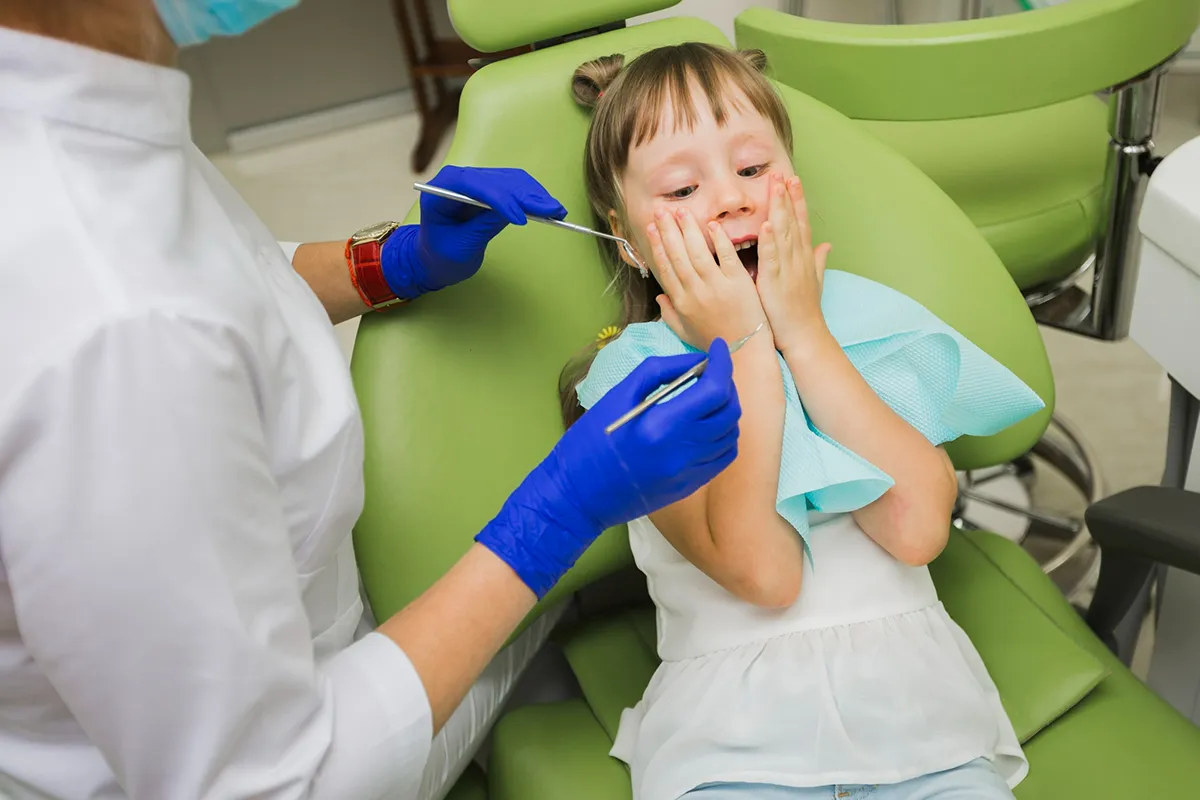Tooth Decay Prevention in Kids
Children's teeth are really important. If their teeth are lost too soon, the remaining teeth may shift, leaving no place for adult teeth to grow. Tooth decay prevention is important as it can be costly, uncomfortable, and lead to life-threatening infections especially in kids.
Tooth decay is a risk for every child. On kid's teeth, the enamel (hard outer layer) is significantly thinner and weaker, putting them at a higher risk of decay. The good news is that tooth decay can be avoided in most cases.
Early Signs of Tooth Decay
The process of tooth decay is sometimes known as 'caries.' It may begin in the form of white patches around the gum line often on the upper front teeth. However, these spots are difficult to notice at first, even for a child's doctor or dentist without using the proper equipment for detection. Decaying teeth may also develop brown or black patches in the later stages.
The four front upper baby teeth are by far the most commonly affected. A child with tooth decay should be checked and treated as soon as possible to avoid the decay from spreading and causing more damage.

Steps to Prevent Tooth Decay
- Add Fluoride to your dental care routine: Consuming salt that contains fluoride is a good method to increase the strength of your teeth. Brushing your teeth removes plaque and keeps them appearing and feeling clean. Fluoride toothpaste is very effective at preventing tooth decay. The fluoride in toothpaste is absorbed by your teeth, strengthening them.
- Introduce teeth cleaning & brushing Habits:
For Infants: Use a baby washcloth to gently wipe the gums of your child's mouth. The moment you notice the first tooth, use a soft baby toothbrush and a small amount of fluoride toothpaste to gently brush it.
For kids under 6 years: 2 minutes twice a day is all it takes to brush your child's teeth. If your child is under the age of three, use a small amount of fluoride toothpaste on their teeth. Ideally, brushing should be done right after breakfast and right before bed.
Standard fluoride toothpaste may be used by children as young as six years old, using a pea-sized quantity.
- Limit sugar intake in kids: Never dip dummies in sweet things, such as honey, jam, or sugar, for newborns. At around six months of age, children mostly start eating solids. A wide variety of nutritious foods with a diversity of textures and flavors should be offered to children.
Fruit is a healthier alternative than juice for children. Fruit juice, as a comparison to a piece of fruit, lacks fiber, contains more calories, and is absorbed differently. Unless the label states that a fruit drink is 100 percent juice, many fruit beverages are merely water with a little juice taste and a lot of added sugar. Water down the juice if you must. If you must offer juice, dilute it.
- Regular dental checkups: Examine your child's mouth frequently for early indications of decay. It is advised that children should have their first dental checkup by the age of two. Incorporate a routine dental checkup for yourself and your kids every 6 months.
According to some experts, regular dental checkups can aid in the early detection of tooth decay problems, allowing for more effective treatment to begin sooner. These check-ups also aim to teach kids and teenagers how to take better care of their teeth and gums.
It is possible to prevent tooth decay by brushing your teeth twice a day. If you detect any signs of decay in your child's teeth or if you have any questions about your child's teeth, speak with your child's doctor or dentist. For a lifetime of happy grins, your child can have healthy teeth as long as they are properly cared for. To learn more on tooth decay prevention in kids, contact your Stockton dentist, Dr. Sajjid Rizvi, at Happy Kids Dental today.
There is no treatment guide on this website, and it should not be used as a substitute for professional dental advice from a dentist. It is highly recommended that you get the advice of a qualified dentist or other medical practitioners regarding your specific dental condition.
*Neither this nor any of the other content in this media is meant to prescribe, recommend, or prevent any treatment or procedure.
Resources:
Do Sealants Prevent Tooth Decay?
Subscribe To Our Newsletter
Get Updates And Learn From The Best


